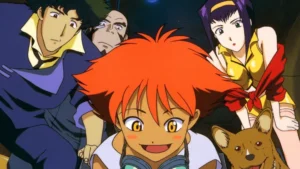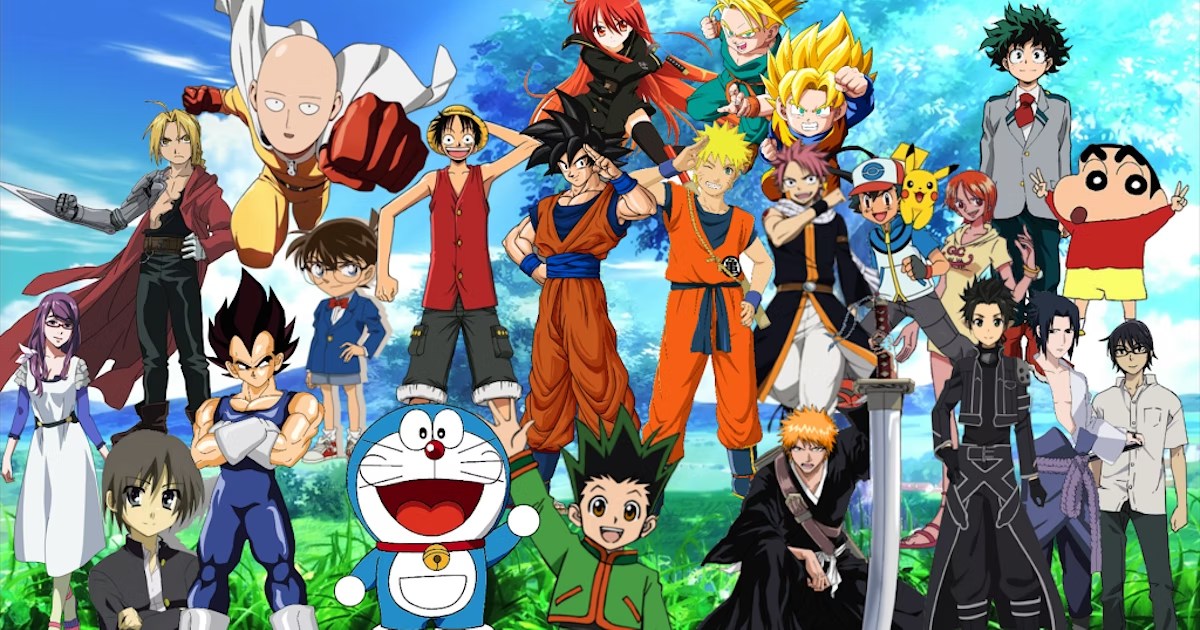How Anime Shapes Global Pop Culture
- By -Maria Mash
- Posted on
- Posted in Animation
Anime, the distinct style of animation originating from Japan, has grown from a niche interest to a powerful force in global pop culture. With its unique storytelling, vibrant art styles, and complex characters, anime has captivated audiences around the world. The influence of anime extends beyond just entertainment—it has shaped global pop culture through its impact on fashion, music, language, and even social trends. This article explores how anime has become a cultural phenomenon, influencing various aspects of global society and becoming a significant element of contemporary popular culture.

The Rise of Anime’s Global Popularity
Anime’s journey to global prominence began in the late 20th century, with iconic series such as Astro Boy (1963), Dragon Ball (1986), and Sailor Moon (1992) introducing Western audiences to Japanese animation. The 1988 film Akira was a turning point, demonstrating that anime could tackle mature themes and appeal to adult audiences. These early successes paved the way for the broader acceptance of anime in global markets.
Moreover, the advent of the internet in the late 1990s and early 2000s played a crucial role in expanding anime’s reach. Online platforms and fan communities allowed anime enthusiasts to share content, subtitled episodes, and fan art, creating a thriving global fandom. As a result, anime has become one of the most consumed forms of entertainment worldwide, with platforms like Netflix, Crunchyroll, and Funimation offering extensive anime libraries to international audiences. This accessibility has only accelerated the global spread of anime, making it a significant part of modern pop culture.
Anime’s Impact on Global Storytelling and Narratives
One of the most notable ways anime has shaped global pop culture is through its influence on storytelling and narrative structures. Unlike many Western animated shows, which often focus on episodic storylines, anime frequently explores long-form narratives with deep character development and complex plotlines. Shows like Death Note (2006), Attack on Titan (2013), and Fullmetal Alchemist: Brotherhood (2009) have demonstrated the potential of serialized storytelling, where characters undergo significant growth and story arcs are interconnected.
In addition, anime often delves into philosophical, psychological, and socio-political themes, providing viewers with more than just entertainment. Series like Neon Genesis Evangelion (1995), Ghost in the Shell (1995), and Steins;Gate (2011) explore complex concepts such as existentialism, artificial intelligence, and time travel. This depth has inspired Western creators to incorporate similar narrative styles and themes into their work, influencing television series, films, and even video games across the globe.
Fashion and Aesthetics: Anime’s Influence on Global Style
Anime’s influence extends beyond the screen, impacting global fashion and aesthetics. The distinct styles seen in anime, from the colorful hair and elaborate outfits to the incorporation of fantastical and futuristic elements, have significantly shaped modern fashion trends. The phenomenon of “cosplay” (costume play), where fans dress up as their favorite anime characters, has grown into a global subculture. Major cities worldwide, from Los Angeles to Paris, host conventions like Anime Expo and Japan Expo, where cosplay is a central feature.
Furthermore, anime-inspired fashion is not limited to cosplay events. Streetwear brands and high fashion designers have embraced anime aesthetics, creating collections that incorporate anime motifs, characters, and styles. Notable collaborations include Louis Vuitton’s partnership with Final Fantasy in 2016 and the influence of Neon Genesis Evangelion on various streetwear lines. This crossover between anime and fashion highlights how deeply anime has permeated mainstream global culture.
Music and Anime: A Symbiotic Relationship
Anime has also played a significant role in shaping global music trends. Many anime series are known for their memorable opening and ending theme songs, which often become hits on music charts in Japan and abroad. Artists like LiSA, who performed the theme songs for Demon Slayer: Kimetsu no Yaiba, have achieved international fame, with their songs gaining millions of streams worldwide.
Additionally, anime has influenced the global music scene beyond Japan. The aesthetic and thematic elements of anime have inspired Western artists in genres ranging from pop and hip-hop to electronic music. Notable examples include the music videos of artists like Billie Eilish and Kanye West, who have incorporated anime-inspired visuals into their work. The fusion of anime visuals and music demonstrates how anime has become a universal language of expression in the modern entertainment landscape.
Anime and Language: Popularizing Japanese Culture Worldwide
Anime has also contributed to the global interest in Japanese language and culture. As anime’s popularity grew, so did the desire among fans to learn Japanese, understand cultural references, and engage more deeply with the content. Anime phrases and expressions, such as “kawaii” (cute), “senpai” (upperclassman), and “tsundere” (a character archetype that is initially cold but gradually warms up), have become part of everyday language for fans around the world.
Furthermore, anime has helped break down cultural barriers by introducing global audiences to Japanese traditions, customs, and societal issues. Series like Spirited Away (2001), Your Name (2016), and Tokyo Godfathers (2003) provide glimpses into Japanese culture, festivals, and social dynamics. This cultural exchange has fostered a greater appreciation for diversity and understanding across borders.
Social Influence: Anime and the Rise of Geek Culture
Anime has been a driving force behind the rise of “geek culture” globally. What was once considered a niche interest has now become mainstream, with anime fans forming vibrant communities both online and offline. These communities often extend beyond anime, embracing other aspects of Japanese pop culture such as manga, video games, and J-pop.
In addition, anime has played a crucial role in normalizing and celebrating diversity within these communities. Anime often features a wide range of characters and stories that challenge conventional norms, allowing fans to explore different perspectives and identities. This inclusivity has contributed to the formation of more welcoming and diverse fan communities, where people from different backgrounds can connect over shared interests.
Anime’s Influence on Other Media and Entertainment Forms
Anime’s impact on global pop culture is also evident in its influence on other media and entertainment forms. Western animation and live-action films have increasingly drawn inspiration from anime, with shows like Avatar: The Last Airbender and films like The Matrix (1999) openly acknowledging their anime influences. The success of anime-inspired films, such as Pacific Rim (2013) and Alita: Battle Angel (2019), further illustrates anime’s impact on Hollywood.
Furthermore, the video game industry has been heavily influenced by anime in terms of both art style and storytelling. Games like Persona 5, Final Fantasy, and The Legend of Zelda: Breath of the Wild reflect anime’s influence in their narrative depth, character design, and visual aesthetics. This cross-pollination between anime and other entertainment forms continues to shape global pop culture, fostering creativity and innovation.
Conclusion
In summary, anime’s influence on global pop culture is profound and far-reaching. From reshaping storytelling and narrative structures to influencing fashion, music, language, and social dynamics, anime has become a cultural force that transcends geographical boundaries. Its ability to blend traditional Japanese elements with universal themes has made it a global phenomenon that continues to inspire and shape contemporary culture. As anime evolves and expands its reach, its impact on global pop culture is likely to grow, cementing its place as a defining element of the modern entertainment landscape.



